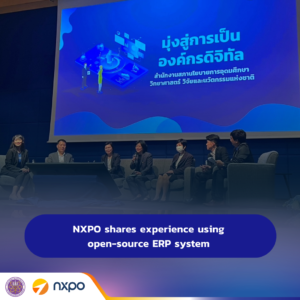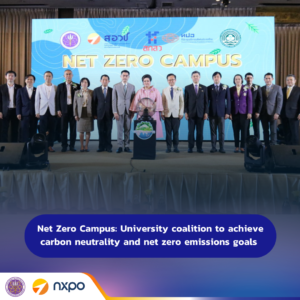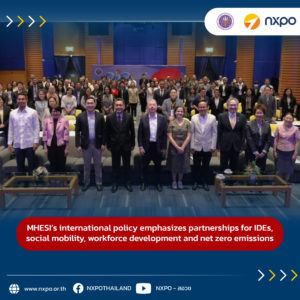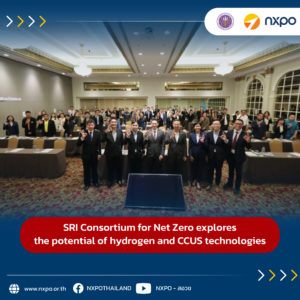In response to the global trend in automotive industry, the Thai government has set the sight to become the regional production hub for EVs and EV parts, intending to have 30% of the total car production in Thailand being zero-emission vehicles by 2030. The 13th National Economic and Social Development Plan also aims for the production of 40,000 EV conversion by 2027. Setting against this backdrop, Future Talk by NXPO recently put a spotlight on an opportunity of EV conversion in Thailand. The virtual seminar took place on 20 February 2023 with three guest speakers – Dr. Manoon Sivapiromrat, Chairman of the Committee on National Security, Border Affairs, National Strategy, and National Reform; Mr. Panus Watanachai, CEO of Panus Assembly Company Limited; and Mr. Pollapot Wanpinyocheep, Managing Director of ECU Shop 1 Company Limited. The session was moderated by NXPO strategist Dr. Thanakarn Wongdeethai.

Dr. Thanakarn Wongdeethai kicked off the seminar with the EV conversion development landscape in Thailand. Prototypes of EV conversions have already been developed, including trucks, passenger cars, buses, motorcycles and three-wheelers. Some of these prototypes have been advanced to commercial production. Nevertheless, collective efforts from all sectors, including the government and academia, are needed to develop the EV conversion industry into a full scale and establish industry standards for consumer acceptance.

“There are two approaches to EV conversion development – the first approach uses imported components, whereas the second one focuses on building technological capacity to manufacture parts and components in Thailand. Both approaches can be taken in parallel to create demand and supply. There are a lot of old gas-powered vehicles in Thailand that can be converted to electric. EV conversion not only saves cost, but also reduces pollution,” said Dr. Thanakarn.

Dr. Manoon Sivapiromrat said that EV conversion can accelerate the EV adoption and bring Thailand closer to its carbon neutrality target. His committee has organized brainstorm meetings with stakeholders to collect information and suggestions to develop an ecosystem to drive EV conversion industry. Progress has been made in the areas of EV battery excise tax, registration of EV conversion businesses, and upskill of auto shops.

Mr. Panus Watanachai said that his company has expertise in the design and manufacturing of heavy transportation equipment including trucks, trailers and container vehicles and a pioneer of Ground Support Equipment (GSE) for airports, such as aircraft towing tractors and electric cars. Four years ago, the company received grants from PMUC to develop EV conversion. The EV conversion prototypes were able to demonstrate the cost saving compared to gas-powered cars. He pointed out that the government will need to have a clear policy for R&D, as there are a lot of car models that require conversion kit development. With the disruption in supply chain and logistics caused by wars and geopolitical conflict, Thailand would need to strengthen its production capacity for parts and components. In term of workforce development, his company is working with universities to develop training courses on EV conversion.

Mr. Pollapot Wanpinyocheep said that his company has been exploring commercial opportunities in EV conversion. His company produces controllers for EV conversion. Still the cost of an EV conversion is high and can be brought down if the government can help set up a system to connect supply and demand. Incentives that have proven successful in other countries should be studied and applied to Thailand. For instance, in Indonesia, the EV conversion subsidy is the same level as the new electric car.









